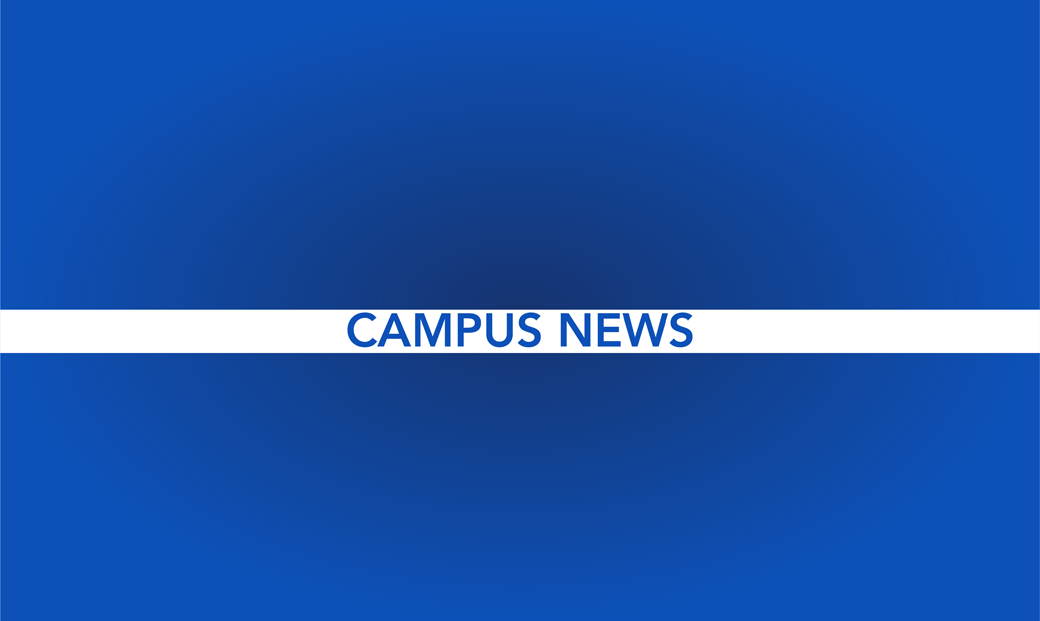
New TRIO program offers extra support for undergraduate students
A new federal program hopes to make a difference at USD, 144 students at a time.
Student Support Services is one of three TRIO programs on campus. The program started last semester and will soon be at full capacity. It offers individual meetings with advisers and free tutoring for at-need students.
Through a $1.1 million grant received by the university last year, Student Support Services is able to accommodate 144 students per year. Its purpose is to provide undergraduate students with “access and success in their college experience,” said Carol VossWard, director of the program.
The other two TRIO programs, Upward Bound and Educational Talent Search, also serve high school students.
Rachael Gaertner, a sophomore, has been a member of Student Support Services since last semester. Before TRIO, Gaertner said she was contemplating dropping out of school to work full time.
In addition to taking three to four courses each semester, Gaertner is a single parent of three kids and works close to full-time.
She heard about TRIO from her academic adviser and disability services. Since then, she said her experience with the program has been “amazing.”
Gaertner said she and her TRIO adviser, VossWard, talk at least two times a week, either over the phone or email.
“I would say Carol kept me here,” she said. “If I had to pinpoint it, it was Carol. She took the time to get to know me and what works for me and what doesn’t work for me.”
Senior Chance Yagabo, another program participant, has been involved with TRIO since 2009, when he was in high school. After being accepted into the Upward Bound program, his TRIO adviser helped him apply to SDSU, wrote him a recommendation letter and introduced him to faculty.
“It helped a lot,” he said. “She did a lot of stuff for me.”
Yagabo was enrolled in Upward Bound throughout his first year of school. That’s also when he first applied to SDSU’s Student Support Services, which he said was another “big help” in his life and education.
Yagabo transferred to USD two years ago to pursue a criminal justice major. He was just accepted into USD’s Student Support Services program about a month ago, and said his adviser has already helped him quite a bit.
Yagabo said he would encourage students to apply for the program and take advantage of its services, like free tutors and other helpful resources.
“It’s a program that’s there to help you to be successful in your lifetime,” he said.
Without the program, Yagabo said he doesn’t know where he’d be in his college career.
Despite TRIO’s focus on academics, Yagabo said he’s seen many benefits beyond help with classes and schedules. Yagabo’s advisers have pushed him to do his best, helped him step-by-step and made him feel more comfortable asking questions. He’s also much better at time management and planning, he said.
“It’s like a parent sitting next to you,” Yagabo said. “So it’s really nice.”
A stronger connection
VossWard started as the program’s director last November. Chrissy Lesher, the program’s counselor, and Carlie Ness, the academic skills coordinator, have since been hired. All three faculty members act as advisers to students in the program.
Though always located in the MUC, this is the first year Student Support Services faculty have all had offices in the Center for Diversity & Community.
“There’s a great atmosphere here that’s very welcoming, there’s things going on, it’s engaging,” VossWard said. “So I think that it makes people feel comfortable and it makes it easy for them to take advantage of the services that are here.”
Both Yagabo and Gaertner said they’d like to see Student Support Services grow.
Over time, as the program is more established and sees more success, VossWard said she hopes the university will receive funding to serve more eligible students.
“Our goal is to build a really strong program at USD that offers the right kind of opportunities and support that students need as they persist to graduation and beyond,” she said.
All grade levels are accepted in Student Social Services, and students don’t have to reapply from year to year. Students are eligible for the program if they meet one or more of the criteria: Taxable income (not annual or adjusted gross income) meets the federal low income eligibility guidelines, be a first-generation college student (meaning neither parent has a four-year college degree) and have a documented disability.
Once students are accepted into the program, they’re assigned to and meet with one of the three advisers. VossWard said the first meeting with a TRIO adviser is spent discussing the student’s interests, academics, career goals, financial needs and more.
Yagabo said in his experience, his TRIO adviser has been “more connected” than other faculty advisers.
Similarly, Gaertner said the extra connection helped her stay on track.
“Sometimes it’s just the extra kick that you need,” she said.
A social work major and addiction studies minor, Gaertner said her experience with TRIO made her feel like she wasn’t “just another student.”
“I’m thankful for it. All together, it’s probably the reason that I’m still here,” she said. “I can honestly say that.”

